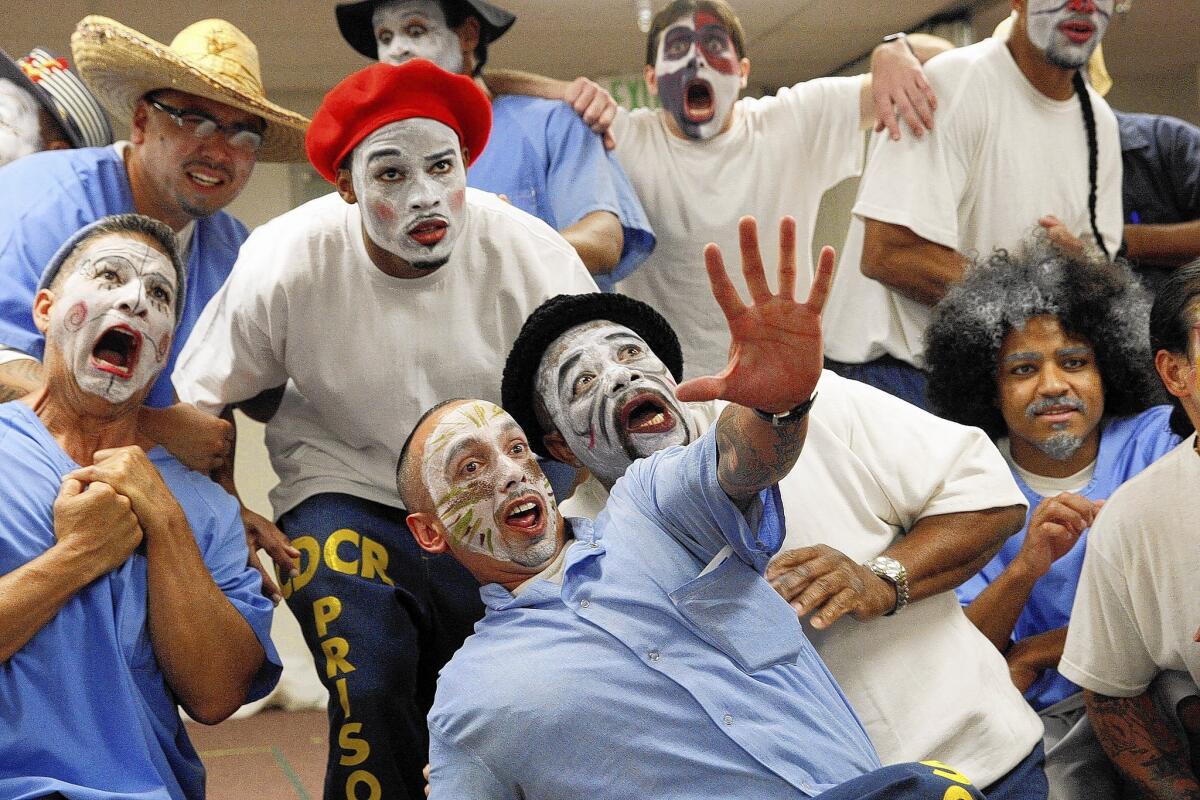California Arts Council could see state allocation rise to $5 million

- Share via
This story has been updated. Please see below for details.
It isn’t all that the state Legislature’s arts allies had hoped for, but the 2014-15 budget recently passed by the Senate and Assembly includes a $5 million increase for the California Arts Council — the first boost in taxpayer funds the agency has had in 11 years.
The council, which issues grants to nonprofit arts groups and arts education programs, had seen its annual allocation from state tax coffers stagnate at about $1 million since 2003-04, down from a peak of nearly $31 million in 2000-2001.
There’s one last gatekeeper whose approval is needed: Gov. Jerry Brown, who can reduce any budget item approved by the Legislature. State State Sen. Ted Lieu (D-Torrance) said Monday that indications from the governor’s staff suggest that he’ll OK the arts increase. “He knows it’s important to many of the members,” Lieu said. “He could still [use the veto], but I don’t get that sense.”
The advocacy group Californians for the Arts issued an email bulletin Monday asking arts supporters to send the governor letters urging him to let the $5-million increase stand.
A “sample letter” the group suggested reminds Brown of his own declaration in the agency’s most recent annual report that “as governor in 1976, I helped form the California Arts Council on the basis that the arts are central to the lives of Californians. My belief in the arts is still strong today….”
The Arts Council’s recent overall budgets have been about $5 million; they include an annual $1-million federal grant from the National Endowment for the Arts — a match that would have evaporated had the state not anted up at least $1 million of its own each year. The main funding mechanism has been about $3 million a year in donations from motorists who opt for special license plates whose extra fees go to support arts grants.
The current session in Sacramento included several unsuccessful bills that would have established a permanent guaranteed minimum for arts funding, including a proposal by Lieu that called for a floor of $25 million. They all died in legislative committees.
Assemblyman Adrin Nazarian (D-Sherman Oaks) and others decided to try the budget route instead. The increase will be subject to the annual budgetary wrangling, but the amount penciled in to start will be $6 million instead of $1 million, which advocates hope will create a de facto higher minimum for arts funding.
Nazarian’s $10-million proposed increase passed the Assembly, was reduced to $7 million by a budget conference committee of senators and assemblymen, and dropped to $5 million in the penultimate funding stop, which involves talks between legislative leaders and the governor.
“It’s a step in the right direction, it’s a turnaround,” said Dan Savage, a spokesman for Nazarian. “It’s hugely shy of where [arts funding] needs to be, but it shows there’s a desire to do it.”
A potentially significant bill for arts funding is still alive in the Senate Appropriations Committee, after passage by the Assembly last month. Sponsored by Nazarian, it would allow the arts council to accept private donations separate from the license plate funding. A hearing is scheduled June 23.
The arts council also recently received a $2.5-million transfer from the California Department of Corrections and Rehabilitation to issue grants over the coming two years for arts programs for prison inmates. The Actors’ Gang in Los Angeles, which has funded its own prison theater program since 2006, will get $112,000 in public funds, and Fullerton’s Muckenthaler Cultural Center will receive $44,600.
For the record, June 18, 3:58 p.m.: A previous version of this story incorrectly said that the California Arts Council’s funding from state tax funds would total $5 million under the recently passed budget. It will incease $5 million, bringing the total from California taxpayers to about $6 million.
More to Read
The biggest entertainment stories
Get our big stories about Hollywood, film, television, music, arts, culture and more right in your inbox as soon as they publish.
You may occasionally receive promotional content from the Los Angeles Times.











